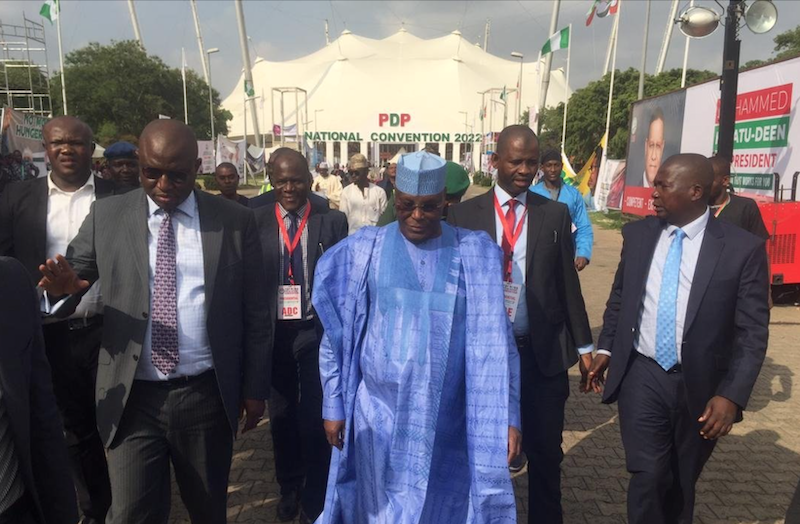Former Vice President Atiku Abubakar and the Peoples Democratic Party (PDP) have strongly dismissed recent endorsements received by President Bola Tinubu from governors and stakeholders within the All Progressives Congress (APC), characterizing them as clear indicators of panic and desperation as the 2027 elections approach.
The opposition leaders maintain unwavering confidence in their coalition’s ability to defeat the ruling party in the upcoming general elections, despite the wave of endorsements supporting Tinubu’s potential re-election bid.
Paul Ibe, Media Adviser to Atiku Abubakar, expressed firm belief in the coalition’s preparedness and capability to challenge and ultimately win the 2027 general elections, regardless of the political endorsements garnered by the current administration. Drawing an analogy to academic preparation, Ibe compared the coalition’s position to that of a well-prepared student facing an examination.
“When you’ve prepared diligently for an exam, you can sleep soundly the night before, waking up assured of success. That’s the position of our coalition,” Ibe stated, emphasizing the opposition’s confidence in their electoral strategy.
Ibe argued that the ultimate arbiters of the 2027 election outcome will be the Nigerian people themselves, not the political maneuvering and endorsement games being played by the ruling party. He suggested that the recent wave of endorsements actually reveals the administration’s underlying anxiety about its electoral prospects.
The Media Adviser painted a grim picture of the current state of affairs under the Tinubu administration, highlighting critical challenges facing the nation. “The recent endorsements reveal the panicked state of this administration. Insecurity is at an unprecedented level, with insurgents reclaiming territories in Borno State and other regions. The cost of living is unbearable, and families are struggling to meet basic needs. Yet, the government has done little to address these critical issues, choosing instead to focus on political games,” Ibe declared.
Beyond criticizing the administration’s performance, Ibe made serious allegations about the methods being used to secure political support. He accused the Tinubu government of weaponizing anti-corruption agencies to coerce opposition politicians into defecting to the APC, claiming that many recent defections were not motivated by genuine ideological alignment but rather by political pressure and intimidation.
“These defections are not driven by ideology or preference for the APC. Politicians are being held hostage and coerced into joining the ruling party. Some are being targeted for corruption by both former governors and the current administration, forced to pay a ransom that manifests as defections,” Ibe alleged, specifically mentioning activities in Delta State and referencing what he termed a “quiet bomb” strategy being used to pressure potential defectors.
The PDP’s National Organizing Secretary, Umar Bature, reinforced the party’s dismissive stance toward the endorsements, arguing that such political backing does not guarantee electoral success. He drew historical parallels to underscore his point, recalling the 2014 presidential election outcome.
Bature reminded observers that despite receiving endorsements from 21 governors, former President Goodluck Jonathan ultimately lost the election, suggesting that popular endorsements do not always translate to electoral victory. “Tinubu has 22 endorsements. There’s nothing to worry about. It’s just a matter of time. The issue isn’t endorsement; the issue is whether you’ve done the right thing for the country. Endorsements are merely cosmetic. People resort to them when they know they’re not serving the interests of the people they claim to represent,” he stated.
Addressing internal party dynamics, Bature denied suggestions of crisis within the PDP, characterizing recent internal discussions as normal expressions of democratic views. He downplayed concerns about potential defections, expressing confidence that party members considering departure would ultimately reconsider their positions.
“There is no crisis. Members are simply expressing their views. If they say they want to leave the party, time will tell. These matters will resolve themselves,” Bature concluded, projecting confidence in the party’s internal cohesion despite ongoing political pressures.
The exchanges highlight the intensifying political atmosphere as Nigeria approaches the 2027 general elections, with both ruling and opposition parties positioning themselves for what promises to be a highly contested electoral battle.

















